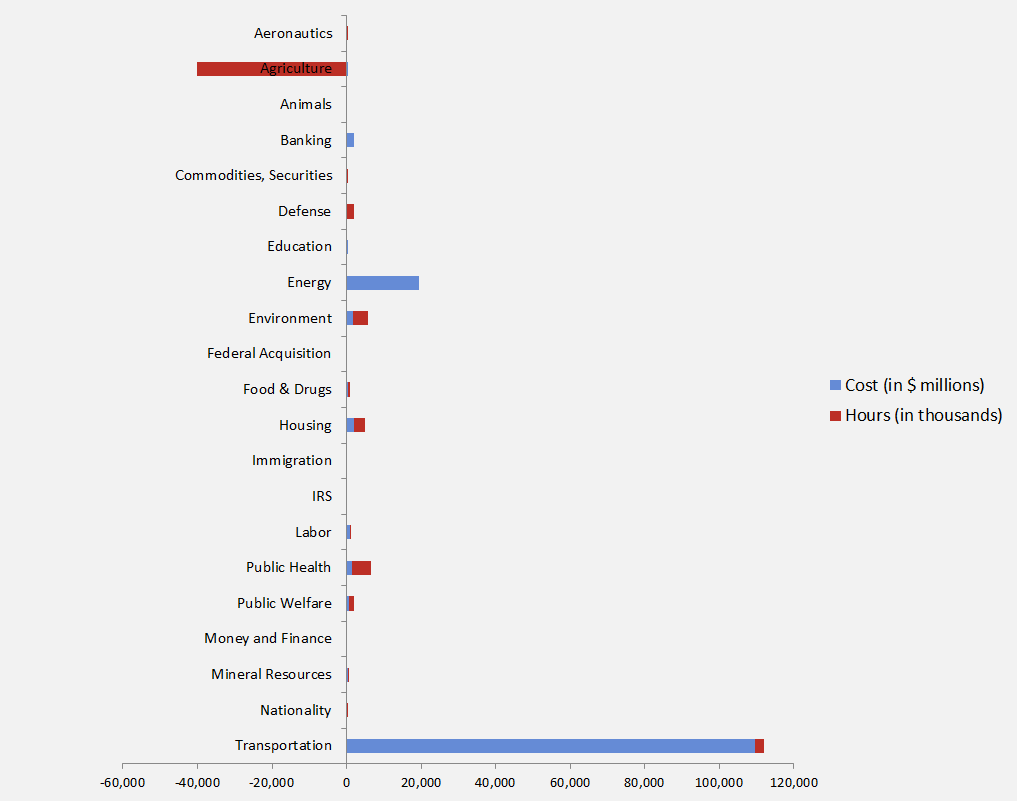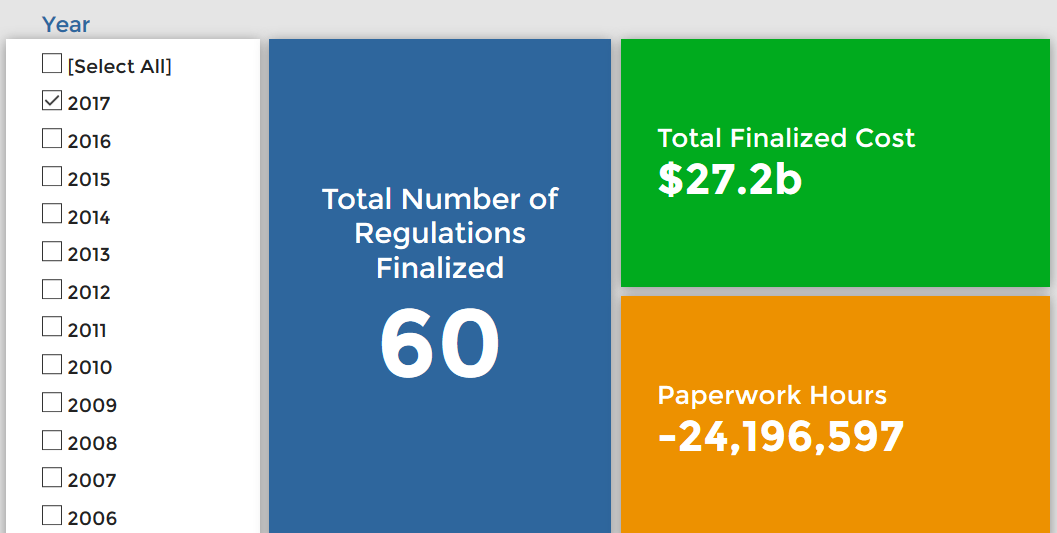Week in Regulation
March 13, 2017
CRA Gains Steam in Senate
Virtually nothing happened in the world of published regulations this week. The regulatory freeze is still largely in effect, as two lone airworthiness directives provided the only monetized figures. Total costs this week were just $39 million, with no paperwork figures. However, the Congressional Review Act (CRA) continued to work in force. The Senate disapproved four regulations this week, totaling $501 million in regulatory rescissions and 3.8 million fewer paperwork burden hours. The per capita regulatory burden for 2017 is $428.
Regulatory Toplines
- New Proposed Rules: 27
- New Final Rules: 39
- 2017 Total Pages of Regulation: 13,378
- 2017 Final Rules: $27.2 Billion
- 2017 Proposed Rules: $111.5 Billion
The American Action Forum (AAF) has catalogued regulations according to their codification in the Code of Federal Regulations (CFR). The CFR is organized into 50 titles, with each title corresponding to an industry or part of government. This snapshot will help to determine which sectors of the economy receive the highest number of regulatory actions.
The Federal Aviation Administration (FAA) published two airworthiness directives, one proposed rule (for Boeing 737, 757, and 767 airplanes) and one final measure (for CFM engines). The total costs are just $39 million.
Tracking Regulatory Modernization
The Senate was busy this week and passed four CRA resolutions of disapproval. They repealed the Contractor Blacklisting rule ($872 million in total costs), a Resource Management measure, a regulation on Teacher Preparation Issues ($278 million in costs), and a rule on State Plans ($73 million in costs) from the Every Student Succeeds Act. The teacher preparation rule received a fair amount of bipartisan support, as eight Democrats supported the repeal. Look to those eight Democrats for any chance of passing a more comprehensive regulatory reform package this Congress. With House passage, the combined deregulatory total from Senate actions this week tops $500 million in costs and 3.8 million fewer paperwork burden hours.
As of this writing, the House and Senate have both voted to overturn seven regulations, detailed here. President Trump has signed three measures, but the recent slate of four additional CRA resolutions from this week await formal approval. Once signed, Congress and the administration will have eliminated $3.7 billion in total regulatory costs and 4.2 million paperwork burden hours.
There are seven additional House CRA approvals on which the Senate has not voted. This week, the House and Senate both introduced a resolution of disapproval to overturn an FCC privacy rule. In addition, Senator Ted Cruz introduced a measure to overturn a Department of Energy rule for “Test Procedures for Compressors.” To date, there have been 32 resolutions of disapproval introduced, with three formally approved.
Affordable Care Act
Since passage, based on total lifetime costs of the regulations, the Affordable Care Act has imposed costs of $53 billion in final state and private-sector burdens and 176.9 million annual paperwork hours.
Dodd-Frank
Click here to view the total estimated revised costs from Dodd-Frank; since passage, the legislation has produced more than 74.8 million final paperwork burden hours and imposed $38.5 billion in direct compliance costs.
Total Burdens
Since January 1, the federal government has published $138.7 billion in compliance costs ($27.2 billion in final rules) and has cut 20.8 million paperwork burden hours (due to 24.1 million in reductions from final rules). Click below for the latest Reg Rodeo findings.












